11 Best Herbal Creams For Knee Pain
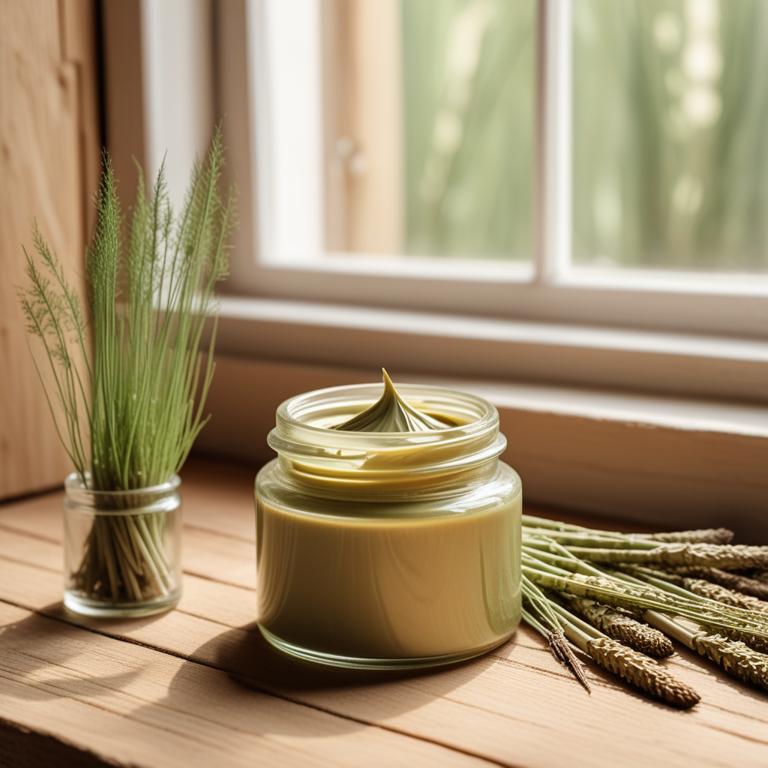
Herbal creams for knee pain are topical ointments or balms that combine natural herbs with emollients to provide relief from joint pain and inflammation.
These creams have numerous benefits, including reducing inflammation, relieving pain, improving mobility, and promoting relaxation, making them an excellent alternative to traditional medications.
Some examples of herbal creams used to treat knee pain include arnica cream, which reduces inflammation and pain, capsaicin cream, which blocks pain signals, and CBD cream, which has anti-inflammatory properties.
Additionally, other herbal creams such as ginger cream, turmeric cream, aloe vera cream, and willow bark cream are also used to treat knee pain due to their anti-inflammatory and pain-relieving properties.
According to "Postgraduate medicine", creams for knee pain that contain glucosamine sulfate, chondroitin sulfate, and camphor, as well as topical diclofenac and ketoprofen, have been reported to alleviate pain in patients with symptomatic knee osteoarthritis.
Below there's a list of the 11 best herbal creams for knee pain.
- 1. Arnica montana creams
- 2. Curcuma longa creams
- 3. Cannabis sativa creams
- 4. Boswellia serrata creams
- 5. Capsicum annuum creams
- 6. Glycyrrhiza glabra creams
- 7. Zingiber officinale creams
- 8. Commiphora mukul creams
- 9. Mentha x piperita creams
- 10. Rosmarinus officinalis creams
- 11. Aloe barbadensis creams
Also you may be interested in...
TODAY'S FREE BOUNDLE
Herb Drying Checklist + Herbal Tea Shopping List + Medicinal Herbs Flashcards
Enter you best email address below to receive this bundle (3 product valued $19.95) for FREE + exclusive access to The Aphotecary Letter.
$19.95 -> $0.00
1. Arnica montana creams
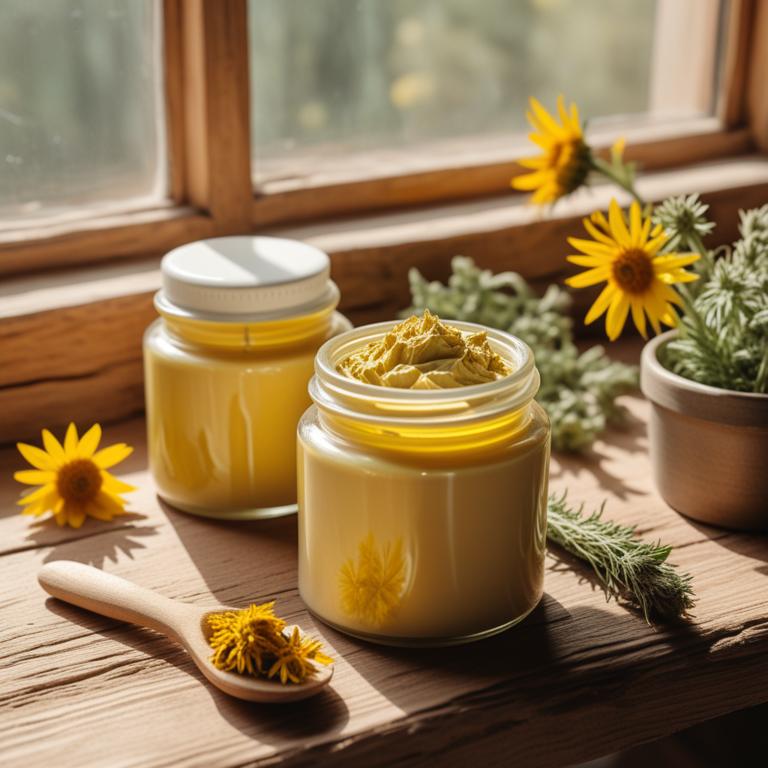
Arnica montana creams have been used for centuries to treat knee pain, a common ailment caused by inflammation and damage to the cartilage and joints.
The anti-inflammatory and analgesic properties of Arnica montana creams help to reduce pain and swelling, allowing for improved mobility and flexibility.
The bioactive constituents, including sesquiterpene lactones, flavonoids, and phenolic acids, in Arnica montana creams work together to inhibit the production of pro-inflammatory enzymes and mediators, thereby reducing inflammation and promoting healing.
The benefits of using Arnica montana creams to treat knee pain include reduced pain and inflammation, improved joint mobility, and enhanced overall quality of life.
2. Curcuma longa creams
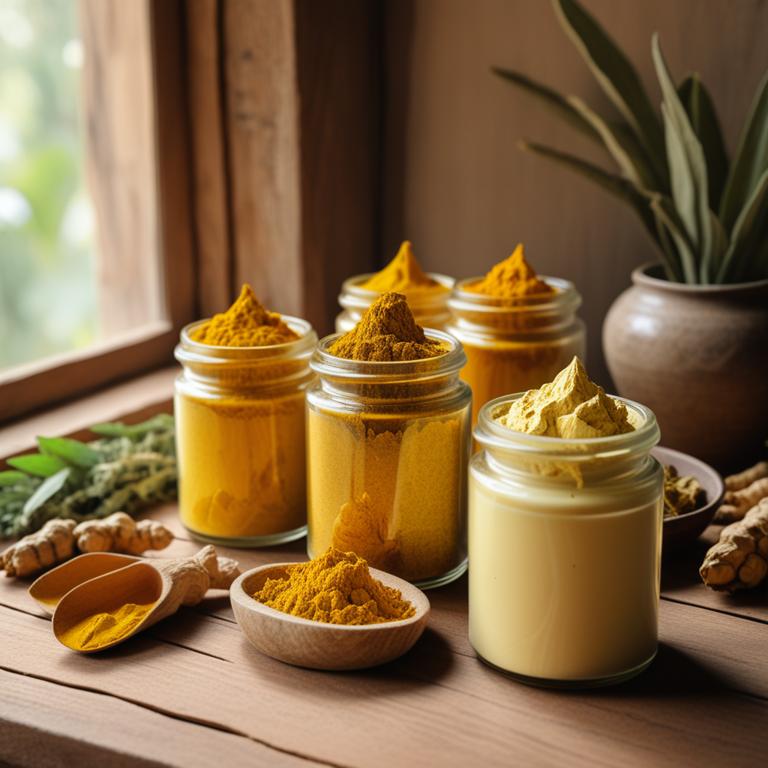
Curcuma longa creams are herbal preparations used to treat knee pain, a common ailment affecting millions of people worldwide.
The anti-inflammatory and antioxidant properties of Curcuma longa creams help to reduce knee pain and inflammation by inhibiting the production of pro-inflammatory enzymes.
The bioactive constituents, including curcumin, demethoxycurcumin, and bisdemethoxycurcumin, in Curcuma longa creams are responsible for their therapeutic effects, which include reducing joint pain and swelling.
The benefits of using Curcuma longa creams to treat knee pain include reduced reliance on pain medication, improved joint mobility, and enhanced overall well-being.
Related Study
According to "Journal of medicinal food", Curcuma longa creams for knee pain have been shown to be effective in reducing pain, particularly at night while in bed and in an upright standing position, and also decreased high-sensitivity C-reactive protein levels indicating a prompt analgesic effect mediated by a decrease in inflammatory status after 1 week of consumption.
3. Cannabis sativa creams
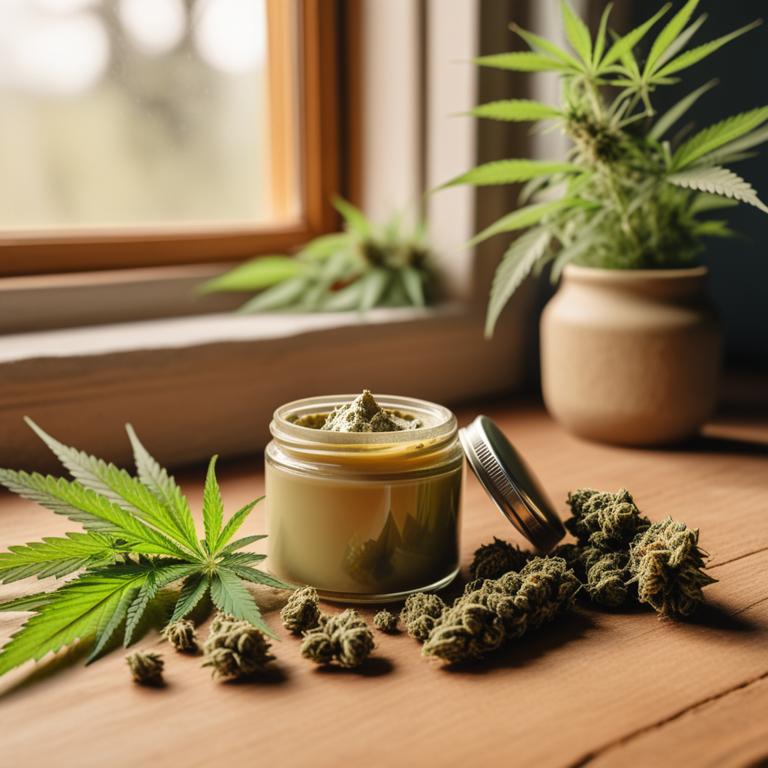
Cannabis sativa creams have been gaining popularity as a natural remedy for treating knee pain, a common ailment affecting millions of people worldwide.
The analgesic and anti-inflammatory properties of this herbal preparation help to reduce pain and swelling in the knee joint, providing relief from discomfort and stiffness.
The bioactive constituents of Cannabis sativa, including cannabidiol (CBD) and tetrahydrocannabinol (THC), interact with the body's endocannabinoid system to reduce inflammation and modulate pain perception.
The benefits of using Cannabis sativa creams to treat knee pain include reduced reliance on opioids, minimal side effects, and improved quality of life.
Related Study
According to the study, Cannabis sativa creams for knee pain may be beneficial due to the presence of secondary compounds that mitigate the side effects of tetrahydrocannabinol, such as reducing anxiety and immunosuppression, and providing anti-inflammatory activity.
4. Boswellia serrata creams
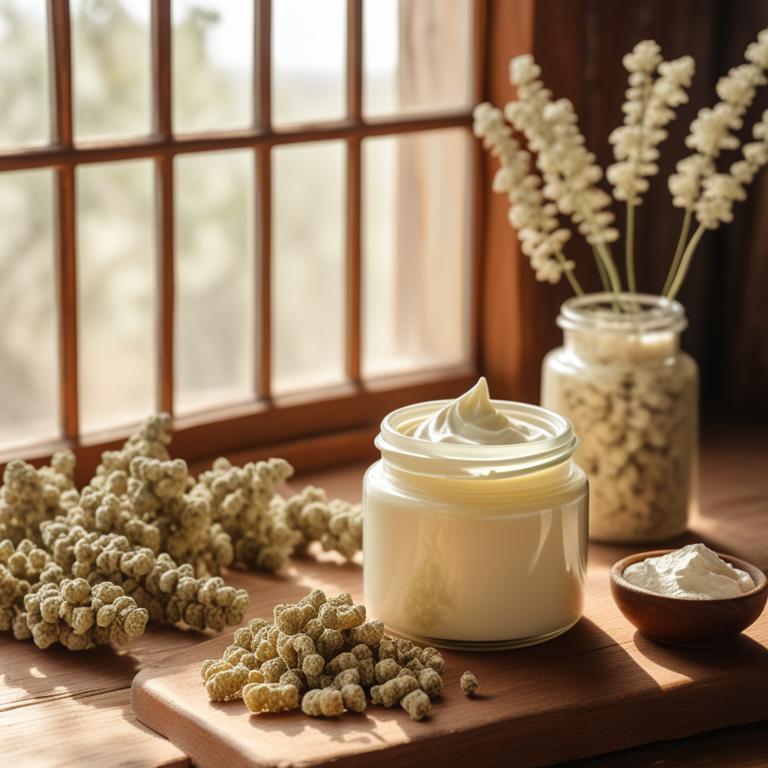
Boswellia serrata creams have been traditionally used to treat knee pain and inflammation, thanks to their anti-inflammatory and analgesic properties that help to reduce pain and swelling in the affected area.
The bioactive constituents of Boswellia serrata, including boswellic acids, acetyl-11-keto-β-boswellic acid (AKBA), and beta-boswellic acid, play a crucial role in inhibiting the production of pro-inflammatory enzymes and cytokines, thereby providing relief from knee pain.
By reducing inflammation and modulating the body's response to pain, Boswellia serrata creams help to alleviate knee pain and improve joint mobility, making it an effective natural remedy for this common ailment.
The benefits of using Boswellia serrata creams to treat knee pain include reduced reliance on pain medications, improved joint health, and enhanced overall well-being, making it a popular choice among those seeking a natural and holistic approach to pain management.
Related Study
According to "Phytotherapy research : PTR", Boswellia serrata creams for knee pain have been found to be more effective than both placebo and valdecoxib for improvement of pain and physical function, suggesting their potential as a treatment option for managing knee pain.
5. Capsicum annuum creams
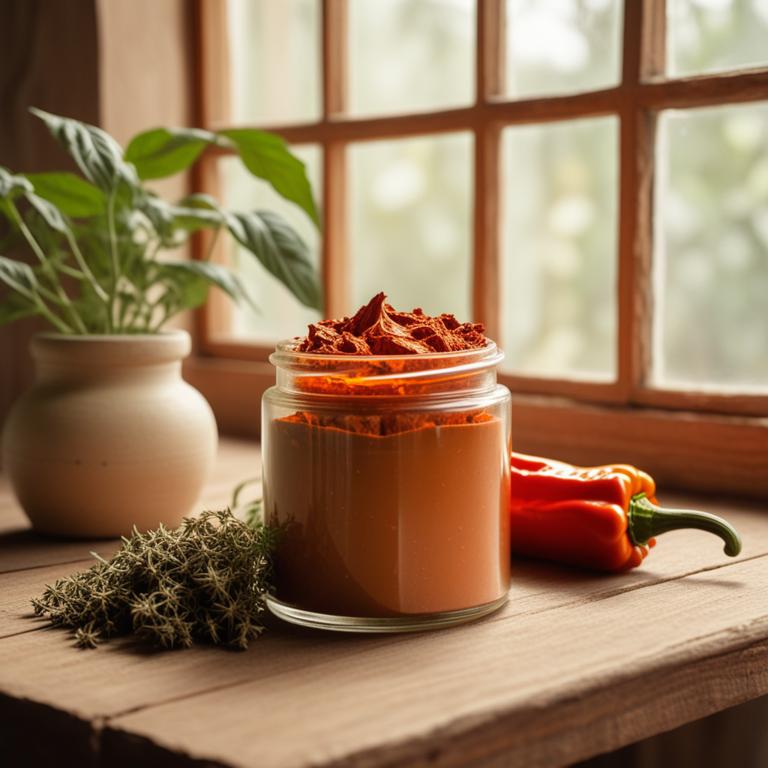
Capsicum annuum creams have been traditionally used to treat knee pain, a common ailment affecting millions of people worldwide.
The creams contain capsaicin, a bioactive constituent with anti-inflammatory and analgesic properties, which helps to reduce pain and inflammation in the knee joint.
Capsaicin works by inhibiting the production of a chemical called substance P, a neurotransmitter responsible for transmitting pain signals to the brain, thereby providing relief from knee pain.
The benefits of using Capsicum annuum creams to treat knee pain include reduced pain and inflammation, improved mobility, and a decrease in the reliance on pain medications, making it a popular natural remedy for this condition.
6. Glycyrrhiza glabra creams
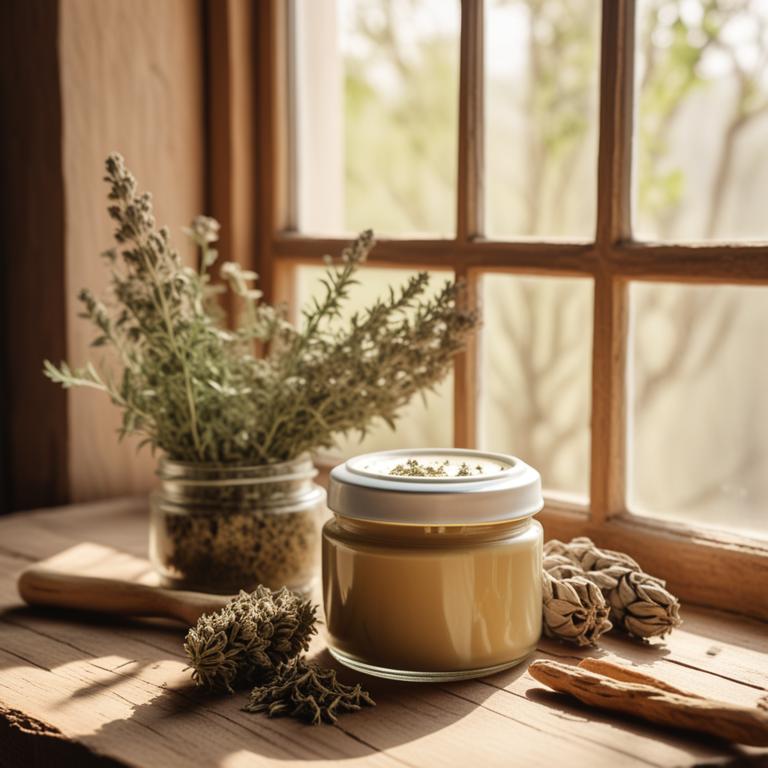
Glycyrrhiza glabra creams, derived from the root of the licorice plant, have been used to treat knee pain due to their anti-inflammatory and analgesic properties.
The bioactive constituents, such as glycyrrhizin and flavonoids, help to reduce inflammation and alleviate pain by inhibiting the production of pro-inflammatory enzymes and blocking the action of pain receptors.
By reducing inflammation and pain, Glycyrrhiza glabra creams help to improve joint mobility and reduce stiffness, providing relief from knee pain and promoting overall well-being.
The benefits of using Glycyrrhiza glabra creams to treat knee pain include reduced reliance on pain medication, improved joint health, and a natural approach to pain management.
7. Zingiber officinale creams
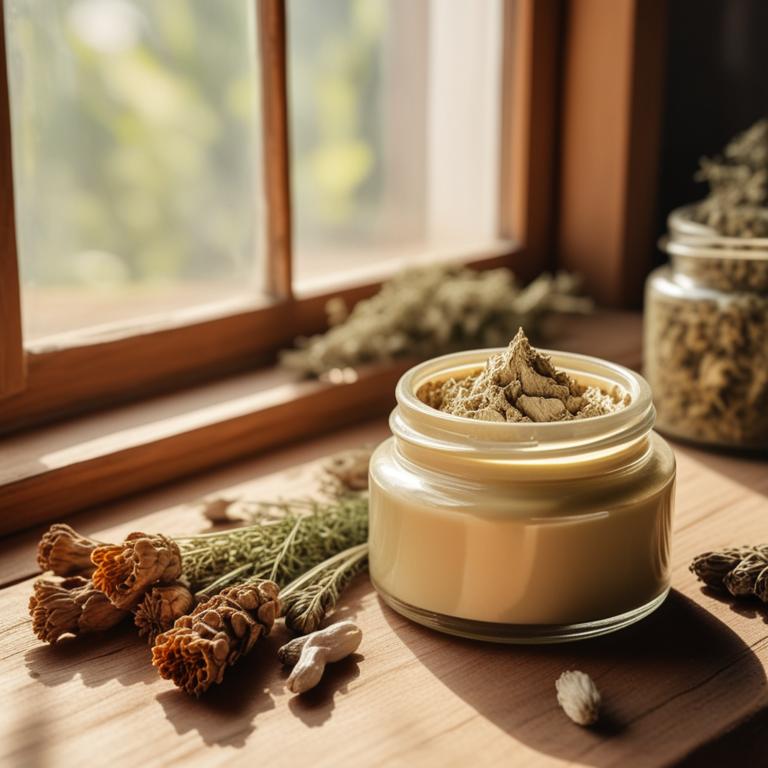
Zingiber officinale creams, derived from the ginger plant, have been traditionally used to treat knee pain due to their anti-inflammatory and analgesic properties.
The bioactive constituents, such as gingerols and shogaols, present in these creams, help to reduce pain and inflammation by inhibiting the production of pro-inflammatory enzymes and cytokines.
This herbal preparation works by reducing the swelling and discomfort associated with knee pain, thereby improving mobility and quality of life.
The benefits of using Zingiber officinale creams to treat knee pain include reduced pain and stiffness, improved joint mobility, and enhanced overall well-being.
Related Study
According to "Arthritis and rheumatism", Zingiber officinale creams for knee pain showed a statistically significant effect in reducing symptoms of osteoarthritis of the knee, with a moderate effect, particularly in reducing knee pain on standing and after walking.
8. Commiphora mukul creams

Commiphora mukul creams have been traditionally used to treat knee pain, a common ailment characterized by inflammation and discomfort in the knee joint.
The anti-inflammatory and analgesic properties of Commiphora mukul creams help to reduce pain and inflammation, thus providing relief from knee pain.
The bioactive constituents, including boswellic acids, are responsible for these therapeutic effects, inhibiting the production of pro-inflammatory enzymes and reducing oxidative stress.
By reducing inflammation and promoting healing, Commiphora mukul creams offer a natural and effective way to treat knee pain, providing benefits such as improved mobility, reduced pain, and enhanced overall quality of life.
Related Study
According to "Current drug discovery technologies", Commiphora mukul creams for knee pain may be beneficial due to its anti-inflammatory, anti-nociceptive, and antioxidant properties, which can help in the management of osteoarthritis.
9. Mentha x piperita creams
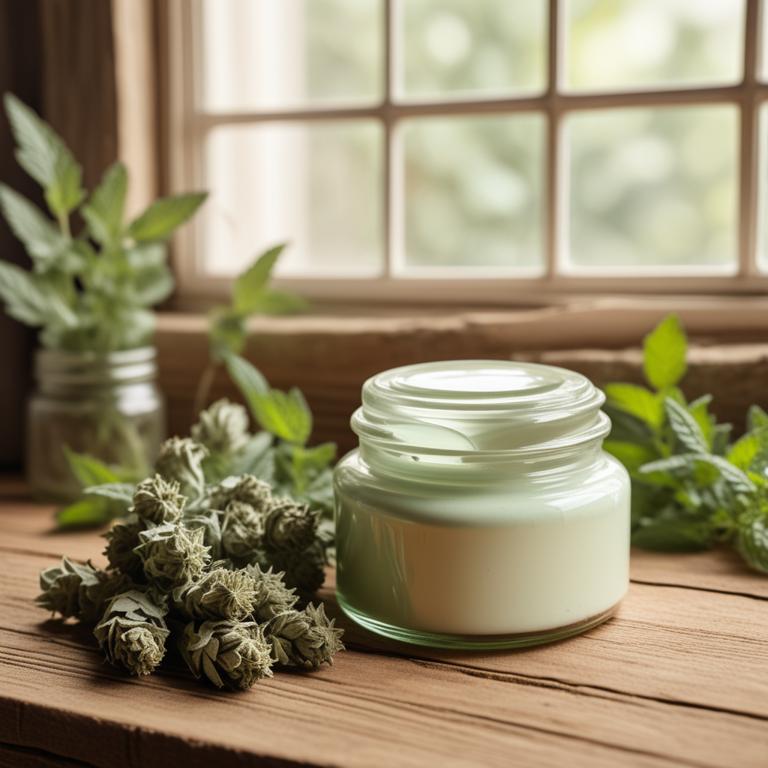
Mentha x piperita creams, derived from the peppermint plant, have been traditionally used to treat knee pain due to their analgesic and anti-inflammatory properties.
The herbal preparation helps to treat knee pain by reducing inflammation, relieving muscle spasms, and promoting relaxation, thereby providing relief from discomfort and pain.
The bioactive constituents of Mentha x piperita creams, including menthol, menthone, and limonene, contribute to their analgesic and anti-inflammatory effects, which help to alleviate knee pain.
The benefits of using Mentha x piperita creams to treat knee pain include reduced inflammation, improved mobility, and a decrease in the need for pain-relieving medications, making it a popular natural remedy for this common ailment.
10. Rosmarinus officinalis creams
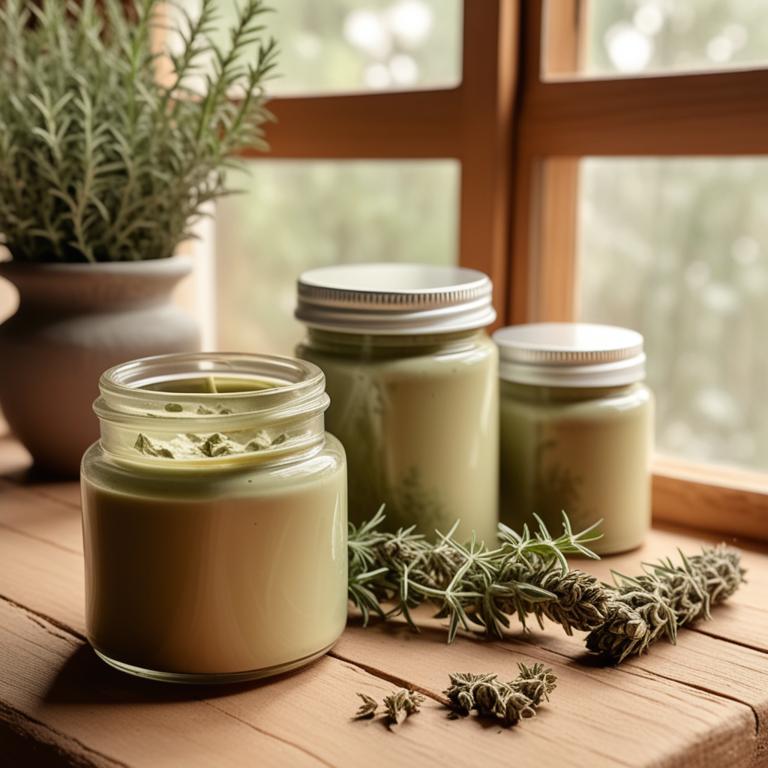
Rosmarinus officinalis creams have been traditionally used to treat knee pain due to its anti-inflammatory and analgesic properties, which help to reduce pain and swelling in the affected area.
The bioactive constituents of Rosmarinus officinalis, including carnosic acid and rosmarinic acid, have been found to have potent antioxidant and anti-inflammatory effects, contributing to its pain-relieving properties.
By applying Rosmarinus officinalis creams topically, the bioactive constituents can penetrate the skin, reaching the affected area and helping to reduce inflammation and alleviate pain.
The benefits of using Rosmarinus officinalis creams to treat knee pain include reduced inflammation, improved mobility, and a decrease in the reliance on pain medication.
11. Aloe barbadensis creams
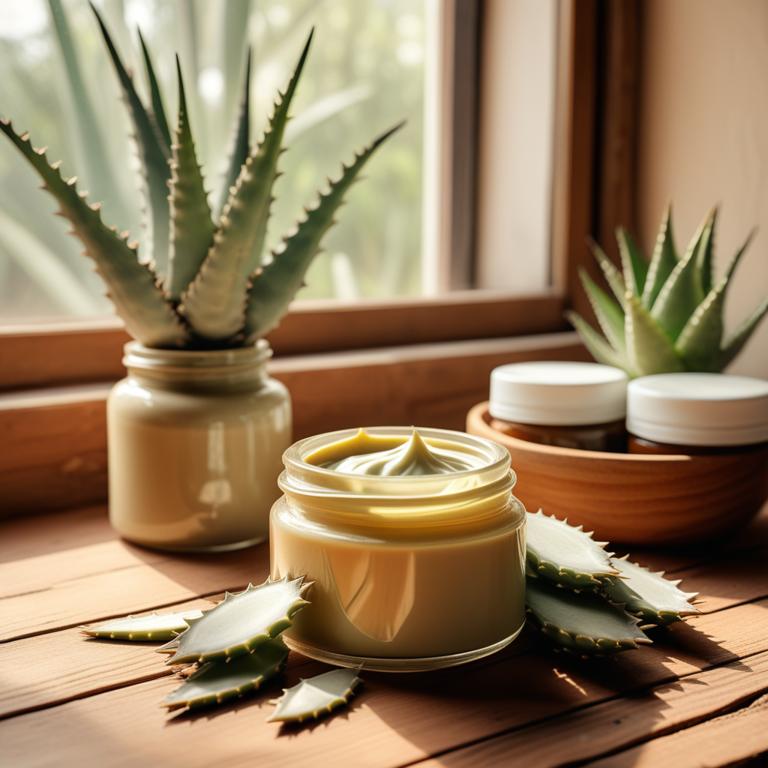
Aloe barbadensis creams are a natural and effective remedy to treat knee pain, a common ailment affecting millions of people worldwide.
The anti-inflammatory and analgesic properties of Aloe barbadensis creams help to reduce swelling and ease pain in the knee joint, allowing individuals to regain their mobility and perform daily activities with ease.
The bioactive constituents of Aloe barbadensis creams, including aloin, aloe-emodin, and acemannan, are responsible for its therapeutic effects, which include reducing inflammation, promoting wound healing, and suppressing pain perception.
The benefits of using Aloe barbadensis creams to treat knee pain include reduced reliance on pain medications, improved joint mobility, and enhanced overall well-being.
Related Study
According to "Journal of the American Podiatric Medical Association", Aloe barbadensis creams for knee pain showed anti-inflammatory effects, reducing vascularity by 50% and the number of mast cells in synovial fluid by 48% in a synovial pouch model, and stimulated fibroblasts for growth and repair of the synovial lining.